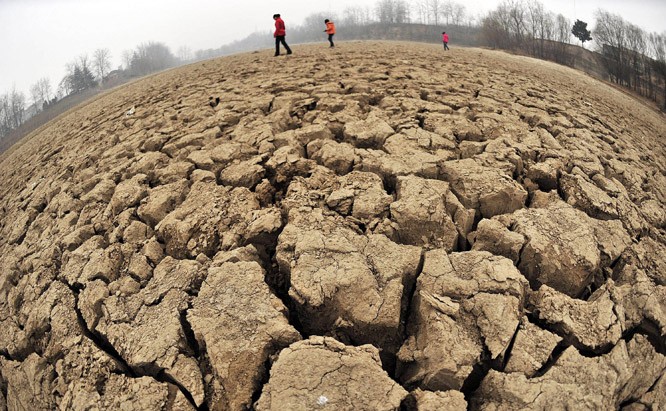
Initiatives to fight climate change must become a part of a movement to counter our relentless profit-seeking and consumption driven ideals

Imagine an individual with a flame thrower setting a forest on fire. As the locals, those that live off the forest, begin to suffocate, they, in a desperate attempt to survive, each use their garden hose - for some, depleting already scarce water resources - to tame the blaze. Obviously, the whole endeavour is ridiculously futile, even if valiant. The fire will inevitably consume them. When well-intentioned people talk about shutting off the tap while brushing their teeth, or washing their car(s) less, or showering less often in response to climate change, their efforts resemble the story above.
On Independence Day, it was heartening to see individuals plant trees as an act of patriotism. Earlier in the year, social media and WhatsApp groups - the pinnacle of outreach - were flooded with motivational messages on conserving water. Before that, as the smog closed schools and impeded daily life, similar conversations were taking place. All this shows that over the past few years, with air pollution levels in major cities like Lahore and Karachi reaching 10 times the WHO safety limit, increasingly frequent floods and droughts, and thousands of lives lost to recurring heatwaves, among other ominous signs, public awareness about climate change has surged. It is becoming an active, albeit seasonal, part of the social discourse.
But it is worth asking, is my extra car wash draining the aquifers and hurting small farmers in South Punjab and interior Sindh? Is my decision to drive to and from work causing the smog and prematurely killing up to 20,000 people a year? To some extent, yes. But even if we all were to stop using water and driving altogether, the impact would be inconsequential.
Up to 95 per cent of water is used for agriculture and industrial purposes. The largest contributors to deforestation are mega projects, such as the Islamabad metro and lavish housing schemes, and the dominant timber mafia. Coal power plants being set up under CPEC and heavy industries across the country continue to massively pollute the air and water.
Earlier this month, the New York Times published a cover story titled "Losing Earth", which talked about how during the 1970s and 80s, the US had an opportunity to nip the crisis in the bud. Who is to blame for this failure? The people. This story has received a plethora of backlash for a variety of reasons, but the fundamental critique is the failure to put the blame on corporate giants for actively sabotaging any attempts, in the form of activism or legislature, to shift towards more sustainable practices.
Blaming individuals is a distortion of reality because it obscures the dominant role played by major corporations, big farmers, and policy makers in bringing us to this point. Why then is this narrative so prevalent, not just in Pakistan but worldwide? Mass commercialisation that fetishizes individual satisfaction and distracts from, if not demonises, the collective has forced the social discourse to a point where organised political action is seen as dangerous.
We relate to society more as individual consumers than citizens of a polity. Our socially responsible acts of planting a tree or using a reusable bag garnish our otherwise consumption-laden lifestyle, creating a pedestal for self-glorification that absolves us of any further responsibility. This approach, which again places ourselves at the centre rather than nature or society, allows the sacrilegious big businesses to continue to plunder unchecked. In fact, we look to these entities as bastions of sacrifice and progress.
The solution, however, does not lie in taking up electric cars or using air purifiers in our homes. To wait for an Elon Musk type figure to make a technological breakthrough misses the point: the crisis is political, not technical. In many cases, such as renewable energy, the technology is there. Our adaptation needs to be political. On the one hand, we need an active citizenry that raises the voices of those that are suffering the most from ecological disasters and gives them a real stake in the decision-making process. On the other, our conspicuous consumption driven socioeconomic ideals must be replaced with a desire to create an ecosystem in which humans operate in harmony with the natural world (there is significant religious and secular literature on the importance of nature in human wellbeing).
Kate Raworth’s remarkably simple and intuitive book - Doughnut Economics -provides a framework for human development (housing, health, food, etc) within planetary boundaries by changing our definition of progress. She and Jason Hickel, an anthropologist at LSE, are also proponents of de-growth, a movement that argues against the need for infinite growth given our limited natural resources, and want to focus on redistribution.
How applicable these ideas are to Pakistan’s precarious situation is debatable, but these questions must be asked of our existing development framework. Individual voices are drowned out; the pressure to change needs to be collective.
We need a systematic shift in our thinking, in our social setup, in our relations with each other, and our role in the natural world. These are matters that exist at a collective level. KPK’s billion tree tsunami, Sindh’s ban on plastics, Sapphire’s new eco-friendly bag, our neighbourhood tree plantation drives; all these acts are mere lightweight, albeit necessary, punches to a colossal challenge.
To have an impact, they must become a part of a movement to counter our relentless profit-seeking and consumption driven ideals, not merely as individuals, but as a society. The current philosophy of privatised profit but socialised risk has ruined our collectively owned natural environment. As with issues of war and violence, resistance needs to be organised, political and direct. With renowned environmentalist Malik Amin Aslam at the helm, one can hope that the new government goes beyond cosmetic measures and collaborates with civil society to take on those using the flamethrowers.